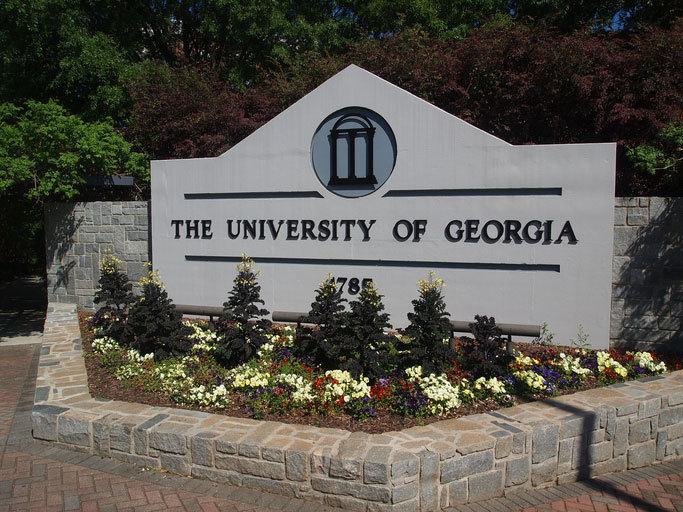Whether you’re a recent high school graduate, a career changer, or a military veteran transitioning to civilian work, Georgia’s BSW programs provide a solid foundation for a rewarding career in social work. Understanding your options and choosing the right CSWE-accredited program is crucial for your success in this field.
If you want to get your MSW but don’t yet hold a bachelor’s degree, your best option is a Bachelor of Social Work (BSW) program.
Already have your BSW? Check out MSW programs in Georgia (includes online options).

What is a BSW Degree?
A Bachelor of Social Work (BSW) is a four-year undergraduate degree that provides comprehensive preparation for entry-level social work practice and graduate study. The curriculum integrates knowledge from psychology, sociology, anthropology, and public policy to develop the competencies needed for professional social work practice.
BSW programs prepare students through a combination of classroom learning, field education, and supervised practice experiences. Students develop skills in assessment, intervention, advocacy, and case management while learning to work with diverse populations across various settings.
One of the great advantages of a BSW is that it qualifies students for one-year Advanced Standing MSWs, accelerating the educational process and lowering overall costs.
This acceleration is possible because BSW coursework covers the foundation year of MSW programs. Students who complete their BSW can often complete their Advanced Standing MSW in just 12-18 months, compared to the traditional two-year timeline.
CSWE-Accredited BSW Programs in Georgia
The Council on Social Work Education (CSWE) accreditation ensures programs meet rigorous standards for curriculum, faculty qualifications, and student outcomes. Georgia’s 10 accredited programs offer a range of specializations and learning formats to cater to diverse student needs.
| University | Location | Program Features | Approximate Annual Tuition* |
|---|---|---|---|
| University of Georgia | Athens | Research focus, 480-hour field practicum | In-state: $12,080 Out-of-state: $31,120 |
| Georgia State University | Atlanta | Urban focus, part-time options available | In-state: $11,076 Out-of-state: $30,114 |
| Savannah State University | Savannah | HBCU, community engagement emphasis | In-state: $6,596 Out-of-state: $19,452 |
| Fort Valley State University | Fort Valley | HBCU, rural social work focus | In-state: $6,658 Out-of-state: $19,396 |
| Thomas University | Thomasville | Small class sizes, evening options | $16,910 |
| Albany State University | Albany | HBCU, child welfare concentration | In-state: $6,540 Out-of-state: $19,396 |
| Clark Atlanta University | Atlanta | HBCU, dual degree options | $23,456 |
| Dalton State College | Dalton | Hispanic-serving institution | In-state: $4,050 Out-of-state: $14,716 |
| Georgia Southern University | Statesboro | Multiple campus locations | In-state: $6,350 Out-of-state: $22,452 |
| Valdosta State University | Valdosta | Medical social work emphasis | In-state: $6,410 Out-of-state: $19,266 |
*Tuition rates are approximate and subject to change. Contact schools directly for current costs and financial aid options.
Whatever program you do choose, be sure that it is CSWE-accredited, as these are the only programs that will make you eligible for licensure.

Traditional vs. Online BSW Programs
Both traditional campus-based and online BSW programs provide comprehensive preparation for social work practice. Your choice depends on personal circumstances, learning preferences, and career goals.
Traditional Campus Programs
Campus-based programs offer face-to-face interaction with faculty and peers, immediate access to campus resources, and structured learning environments. These programs typically include:
- Weekly in-person classes with direct faculty interaction
- On-campus field education coordination and support
- Access to university libraries, counseling services, and career centers
- Networking opportunities through student organizations and events
- Traditional college experience with campus activities
Online BSW Programs
Online programs provide flexibility for working professionals, parents, and students in rural areas. While Georgia doesn’t currently offer fully online CSWE-accredited BSW programs, students can explore options from other states that accept residents from Georgia. Key features include:
- Asynchronous coursework allows study around work schedules
- Virtual classroom interactions and group projects
- Local field placement arrangements in your community
- Technology-enhanced learning with multimedia resources
- Same CSWE accreditation standards as campus programs
BSW Curriculum and Core Coursework
BSW programs adhere to the CSWE’s Educational Policy and Accreditation Standards, ensuring consistent quality across all accredited programs. The curriculum typically spans 120 credit hours, including general education requirements, social work courses, and field education.
Foundation Courses
- Human Behavior and the Social Environment: Understanding individual and family development across the lifespan within environmental contexts
- Social Welfare Policy and Services: Analysis of social policies and their impact on vulnerable populations
- Social Work Practice Methods: Developing skills for assessment, intervention, and evaluation with individuals, families, groups, and communities
- Research Methods: Learning to evaluate practice effectiveness and utilize evidence-based interventions
- Diversity and Social Justice: Examining oppression, privilege, and culturally responsive practice
Specialized Coursework
Many programs offer concentration areas that allow students to focus on specific populations or practice settings:
- Child and Family Social Work: Focuses on child welfare, family dynamics, parenting support, and child protection services
- Medical and Healthcare Social Work: Prepares students for hospital, clinic, and healthcare settings
- Mental Health and Substance Abuse: Addresses addiction, mental illness, and co-occurring disorders
- Gerontological Social Work: Specializes in serving older adults and their families
- School Social Work: Prepares for practice in educational settings
Field Education Requirements
All CSWE-accredited BSW programs require a minimum of 400 hours of supervised field education. Georgia programs typically structure this as:
- Junior year: 200-hour field practicum with concurrent seminar
- Senior year: 200-300 hours advanced field placement
- Supervision by licensed social workers (LMSW or LCSW)
- Weekly supervision and reflection activities
- Comprehensive learning agreements and evaluations

BSW Careers and Salary Outlook in Georgia
Social work careers in Georgia offer both meaningful work and competitive compensation. According to 2024 Bureau of Labor Statistics data, Georgia employs over 15,000 social workers across various specializations, with projected growth of 7% through 2034.
Entry-Level BSW Positions
While most clinical positions require an MSW and licensure, BSW graduates qualify for numerous entry-level positions:
- Case Manager in community mental health centers
- Family Support Specialist in child welfare agencies
- Substance Abuse Counselor Assistant
- Victim Advocate in domestic violence programs
- Youth Program Coordinator
- Residential Counselor in group homes
- Benefits Coordinator in healthcare settings
Salary Data for Social Workers in Georgia
| Specialization | Entry Level (10th percentile) | Median Salary | Experienced (90th percentile) | Job Growth Outlook |
|---|---|---|---|---|
| Child, Family, and School Social Workers | $32,450 | $48,200 | $73,890 | +5% (2024-2034) |
| Healthcare Social Workers | $36,780 | $54,710 | $82,340 | +7% (2024-2034) |
| Mental Health and Substance Abuse Social Workers | $31,420 | $46,720 | $71,560 | +7% (2024-2034) |
| Social Workers, All Other | $43,250 | $75,270 | $108,720 | +6% (2024-2034) |
These figures represent statewide averages. Metropolitan areas like Atlanta typically offer salaries 10-15% above the state average, while rural areas may offer lower salaries but often include loan forgiveness programs and lower cost of living.
Career Advancement with an MSW
BSW graduates who pursue their MSW significantly expand their career opportunities and earning potential. Consider exploring MSW programs that don’t require a BSW if you already hold another bachelor’s degree, or take advantage of Advanced Standing programs if you complete your BSW.
Social Workers in Georgia’s Disaster Relief Efforts
Georgia’s vulnerability to natural disasters, including hurricanes, tornadoes, and flooding, creates unique opportunities for social workers to serve communities in crisis. Social workers play essential roles in both immediate response and long-term recovery efforts.
Immediate Response Roles
During disasters, social workers provide:
- Crisis intervention and psychological first aid at emergency shelters
- Family reunification services when disasters separate loved ones
- Resource coordination connecting survivors with emergency assistance
- Mental health support for first responders and survivors
- Advocacy for vulnerable populations, including elderly and disabled individuals
Long-term Recovery Support
Following disasters, social workers continue supporting communities through:
- Case management helps families navigate complex aid systems
- Trauma-informed counseling for individuals and families
- Community organizing to rebuild social support networks
- Housing assistance and displacement services
- Financial counseling and benefits coordination
BSW students interested in disaster response can gain relevant experience through internships with organizations such as the American Red Cross, the Georgia Emergency Management Agency, and local emergency management offices.
Frequently Asked Questions
How long does it take to complete a BSW program in Georgia?
Full-time students typically complete their BSW in four years. Part-time options are available at several universities, extending the timeline to 5-6 years. Some schools offer accelerated summer sessions that can reduce completion time to 3.5 years.
What can I do with a BSW degree?
A BSW qualifies you for entry-level social work positions and prepares you for graduate study. While clinical practice requires an MSW and licensure, BSW graduates work as case managers, family support specialists, and program coordinators. Most importantly, a BSW qualifies you for Advanced Standing MSW programs, saving a full year of graduate study.
Do I need a BSW to enroll in an MSW program?
No, traditional MSW programs accept students with any bachelor’s degree. However, students without a BSW must complete the foundation year, which extends their program to two years instead of one. Learn more about obtaining an MSW without a BSW .
What’s the difference between state universities and HBCUs for social work education?
Georgia’s four Historically Black Colleges and Universities (HBCUs) with BSW programs—Savannah State, Fort Valley State, Albany State, and Clark Atlanta—offer culturally responsive curricula and strong community connections. These institutions often provide specialized training in serving diverse populations and addressing racial disparities in social services.
How much does a BSW cost in Georgia?
In-state tuition at public universities ranges from $4,050 to $12,080 per year, while private institutions charge between $16,000 and $24,000. Financial aid, including the HOPE Scholarship for Georgia residents, can significantly reduce costs. Many programs also offer field education stipends and work-study opportunities.
What are the admission requirements for BSW programs?
Most programs require a minimum 2.5-3.0 GPA, completion of prerequisite courses (typically psychology, sociology, and statistics), a personal statement, and letters of recommendation. Some programs also require volunteer experience in human services and may conduct admission interviews.
For comprehensive information about social work careers and educational pathways, visit our Social Work Career Guide . If you’re ready to take the next step, explore Georgia’s social work licensure requirements to understand the full career pathway.
2023 US Bureau of Labor Statistics salary and employment figures for Child, Family, and School Social Workers, Healthcare Social Workers, Mental Health and Substance Abuse Social Workers, and Social Workers, All other reflect national data, not school-specific information. Conditions in your area may vary. Data accessed August 2025.











